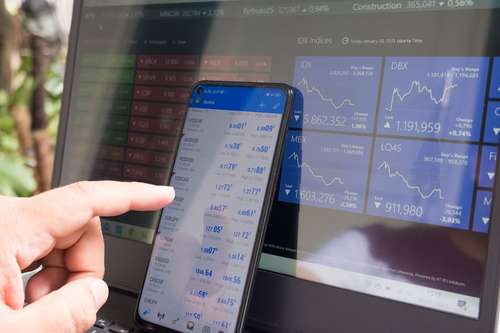OpenAI's brainy CEO has also long supported Bitcoin — and his intriguing thoughts from 10 years ago would amaze you.

Sam Altman, founder and CEO of OpenAI, the company that developed the AI platform ChatGPT, is a well-respected advocate for Bitcoin (BTC).
For many who may not have known, the CEO is excited about cryptocurrency because it operates independently of any centralized authority. His perspective on Bitcoin has been consistent over the years.
In a blog post from ten years ago, Altman shared his initial thoughts on Bitcoin, providing valuable insights into the early considerations and apprehensions surrounding the pioneering cryptocurrency.
Moreover, one of the most prominent projects in the crypto space, Worldcoin, backed by Sam Altman, recently unveiled its development roadmap.
The project plans to implement a grant program worth $5 million to support developers within its eye-scanning ecosystem.
Additionally, Worldcoin aims to achieve decentralization, a challenging endeavor for this ambitious and capital-intensive venture.
Worldcoin, co-founded by Altman in 2020, envisions a future where a person's "personhood" is verified through iris scanning, rewarding them with a crypto token.
As artificial intelligence continues to advance, the project aims to differentiate between human users and bots online while implementing a universal basic income system to mitigate economic disruptions caused by AI.
Worldcoin is a decentralized protocol that aims to benefit all humanity, rather than just influential figures or wealthy investors.
In order to ensure a nonprofit management structure for the project, the Worldcoin Foundation was established in 2022. The project is being developed by Tools for Humanity, which is a for-profit entity led by Altman.
Altman's Perspective on Bitcoin's Future
Altman recognizes the uncertainty surrounding Bitcoin's future role and outlines three potential scenarios: becoming the world reserve currency, failing altogether, or surviving in a niche capacity.

Altman asserts that a currency relying on speculation or illegal transactions is bound to fail, underscoring the significance of genuine and legal use cases.
“Right now, the dominant use case of Bitcoin seems to be speculation, with a secondary use case for illegal transactions. Legal transaction volume is still tiny, and many of those involve the seller immediately converting bitcoins to dollars, with the buyer not desiring to use bitcoin as a new currency but instead a version of either money laundering or tax avoidance,” Altman said.
In his analysis, Altman explores Bitcoin's difficulties as a currency. These include the tendency towards speculative trading and concerns about it becoming a reserve currency.
According to Altman, these factors, combined with illegal activities involving Bitcoin, make it unlikely that Bitcoin can continue to function as a viable long-term currency.
Altman also highlights the difficulties of transacting with a digital asset compared to a physical one, particularly when internet access is limited.
An Exciting Potential
As both the CEO of OpenAI and directly involved in the crypto world through the Worldcoin (WLD) project, Altman recognizes Bitcoin's exciting possibilities, such as low transaction costs for global commerce.
While a fully transparent system may not materialize, the potential for Bitcoin to revolutionize global transactions remains significant.
Over the years, Bitcoin and the broader cryptocurrency landscape have evolved immensely.
Bitcoin has transitioned beyond being merely a speculative asset, gaining recognition as a legal tender, a payment option, and an investment vehicle.
Its remarkable surge in value, reaching an all-time high of approximately $69,000 in late 2021, is a potential reason for its growing significance.



